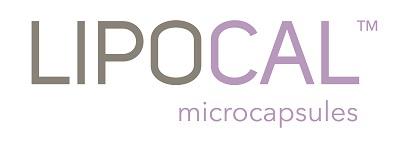
Lipocal™ - A highly bioavailable source of calcium of non-animal origin
Cognitive, muscle, and bone health
Lipocal™ is a microencaspulated mineral and water-dispersible micronised source of calcium. It is from non-animal origin and suitable for vegetarians.
Lipocal™ is available in France and Benelux countries.
Lipocal™ contains 36% calcium in the form of tricalcium phosphate and 18% phosphorus.
The main properties of Lipocal are:
- Improved dispersibility
- High calcium concentration
- Non-animal source of calcium
- Suitable for vegetarians
- Easy to incorporate
1. Lipocal™: a non-animal source of calcium
2. The effect of calcium deficiency on health
3. Calcium, a key determinant of bone health
1. Lipocal™: a non-animal source of calcium
Calcium is an essential nutrient. It is responsible for many metabolic functions such as bone, muscle, blood, digestive and neurological functions.
Lipocal™ is a source of calcium with a strong nutritional benefit. Indeed, in addition to being highly dispersible, this micronized ingredient of non-animal origin is adapted to vegan and lactose intolerant people [1].
While dairy products are considered as the main source of dietary calcium (about 70%), total calcium intakes may still be insufficient. To compensate for this deficiency, most food products require calcium fortification with ingredients suitable for all consumer targets, such as Lipocal™ [1].
Lipocal™ can therefore be used for food enrichment or in the formulation of food supplements.
2. The effect of calcium deficiency on health
Calcium is an essential mineral for the normal growth and maturation of human beings, in addition to maintaining overall homeostasis [3]. Calcium is found in two forms in the organism:
- The storage form (99% of the body’s calcium). Inside the bones, calcium is stored in the form of hydroxyapatite [Ca3(PO4)2(OH)2] where it contributes directly to skeletal strength and flexibility [3].
- The circulating form (1%). Calcium is contained in blood, muscles and other tissues, where it contributes to many vital functions [2].
When calcium intakes are insufficient to maintain the level of circulating calcium, the body mobilizes bone structure [2]. This results in increased bone resorption leading to osteomalacia (decalcification of the skeleton) and then, at a more advanced stage, to osteoporosis [1;4]. Low calcium intakes are also associated with an increased risk of colorectal cancer, hypertension in adults and abnormal growth in children [1].
Thus, calcium deficiencies mainly affect bone health (osteoporosis, slowed growth) but are also involved in the development of related pathologies.
3. Calcium, a key determinant of bone health
Calcium has a determining role in bone function. There are two types of cells within bones: osteoblasts, responsible for bone formation, and osteoclasts, responsible for bone resorption. Bone formation is initiated by osteoblasts through the creation of a matrix of collagen fibers and proteins, followed by mineralization with calcium and phosphorus in the form of hydroxyapatite [3].
Osteoblasts and osteoclasts, by their action, determine the bone calcium status of individuals [3]. But the bone cells themselves are directly subject to an important factor: age.
4. Importance of calcium in seniors and women
One of the most common pathologies related to bone status among seniors is osteoporosis. Osteoporosis is defined as a bone disease that combines both a decrease in bone density and changes in bone microarchitecture [5]. The incidence of osteoporosis in the elderly can be explained by different factors.
First of all, after a given age, bone status tends to deteriorate naturally. Indeed, from birth to the age of 30, the tendency is in favour of osteoblasts, i.e. accretion exceeds bone resorption. But after this stage, the balance is inverted, which can lead to bone loss [2].
In addition, this phenomenon is combined with a decrease in dietary calcium absorption by the digestive system in people over 70 years of age, which requires an increase in calcium intake to maintain bone status [3]. Thus, according to EFSA, the recommended calcium intake for people over 70 years of age is 1200 mg per day [6].
Osteoporosis is also known to affect especiallywomen. Indeed, bone cells are sensitive to the action of certain hormones, particularly oestrogen. Oestrogen have a stimulating role on osteoblasts and an inhibitory role on osteoclasts. During menopause, hormone production drops and with it the protective effect on bone structure [2]. This is why the recommended calcium intake is 200 mg higher in women aged 51 to 70 than in men of the same age (1200 mg per day versus 1000 mg) [6].
Lipocal™ can therefore be used to provide calcium supplements in food products intended for seniors and especially for senior women.

5. Importance of calcium in children and adolescents
If calcium intakes are indispensable in seniors, they are just as indispensable in children and adolescents in order to prevent the appearance of osteoporosis. Indeed, during puberty, individuals reach the so-called peak bone mass. This spike corresponds to the age when bone mass is at its highest: after this stage, bone status declines until the end of life [3].
To prevent the development of bone diseases such as osteoporosis, it is essential to maintain calcium intakes during childhood and puberty in order to maximize bone accretion [2]. For example, daily calcium intake should be 1100 mg for 10-13 year olds and 1200 mg for 13-19 year olds (girls and boys) to ensure maximum bone growth [3;6].
Lipocal™ can thus be used for calcium supplementation in products intended for the diets of children and adolescents.

Sources
- [1] Lipocal web site and brochure
- [2] Calcium | Harvard T.H. Chan
- [3] E.D. Mackowiak (2011). Calcium: An Essential Mineral. Journal of Evidence-Based Complementary & Alternative Medicine, 16(2) 138-144.
- [4] K.-H. William Lau et D. J. Baylink (1999). Fluoride Therapy of Established Osteoporosis. In : The Aging Skeleton. p.587-612.
- [5] Comprendre l’ostéoporose – Ameli Assurance Santé
- [6] EFSA (2015). Scientific Opinion on Dietary Reference Values for calcium.
Lipocal can be used in:
- Foods as permitted under Regulation (EC) No. 1925/2006 on the addition of vitamins and minerals and certain other substances to foods (Annex 1);
- Food supplementsas permitted under Directive 2002/46/EC (Annex 1) on the approximation of the laws of the Member States relating to food supplements;
- Foods for particular nutritional uses as permitted under Commission Regulation (EC) No. 953/2009 on substances that may be added for specific nutritional purposes in foods for particular nutritional uses;
- Infant formulae as permitted under Commission Directive 2006/141/EC on infant formulae and follow-on formulae and amending Directive 1999/21/EC;
- Cereals and baby foods as permitted under Commission Directive 2006/125/EC on processed cereal-based foods and baby foods for infants and young children
According to the Annex XIII of Regulation (EU) No. 1169/2011 on the provision of food information to consumers, the significant amount of calcium is :
- 15% of the nutrient reference values (NRV) specified in point 1 supplied by 100g or 100ml in the case of products other than beverages;
- 5% of the NRV specified in point 1 supplied by 100ml in the case of beverages;
- 15% of the NRV specified in point 1 per portion if the package contains only a single portion.
Lipocal is available in white powder form.
The Nutrient Reference Value (NRV) for calcium is 800mg per day in Europe.
Lipocal can be easily incorporated in a wide range of food applications such as milk and dairy products, infant formula, soy products, bakery products, beverages, food supplements, etc.
It can also be considered suitable to fortify food products designed for those suffering from allergies or intolerances or those who do not consume dairy products.
Nutrition Claims
According to Regulation (EC) No. 1924/2006 of the European Parliament and of the Council of 20 December 2006 on nutrition and health claims, foods and beverages with added calcium may be labelled:
- “Source of Calcium” if they contain at least 15% of the recommended daily allowance (RDA) per 100g, 100ml or per portion;
- “High in Calcium” if they contain at least 30% of the RDA per 100g, 100ml or per portion.
Health Claims
According to the Commission Regulation (EU) No. 432/2012 (Article 13.1), calcium has the following health claims:
- Calcium contributes to normal blood clotting
- Calcium contributes to normal energy-yielding metabolism
- Calcium contributes to normal muscle function
- Calcium contributes to normal neurotransmission
- Calcium contributes to the normal function of digestive enzymes
- Calcium has a role in the process of cell division and specialisation
- Calcium is needed for the maintenance of normal bones
- Calcium is needed for the maintenance of normal teeth
The claim may be used only for food which is at least a source of calcium as referred to in the claim SOURCE OF [NAME OF VITAMIN(S)] AND/OR [NAME OF MINERAL(S)] as listed in the Annex to Regulation (EC) No. 1924/2006.
